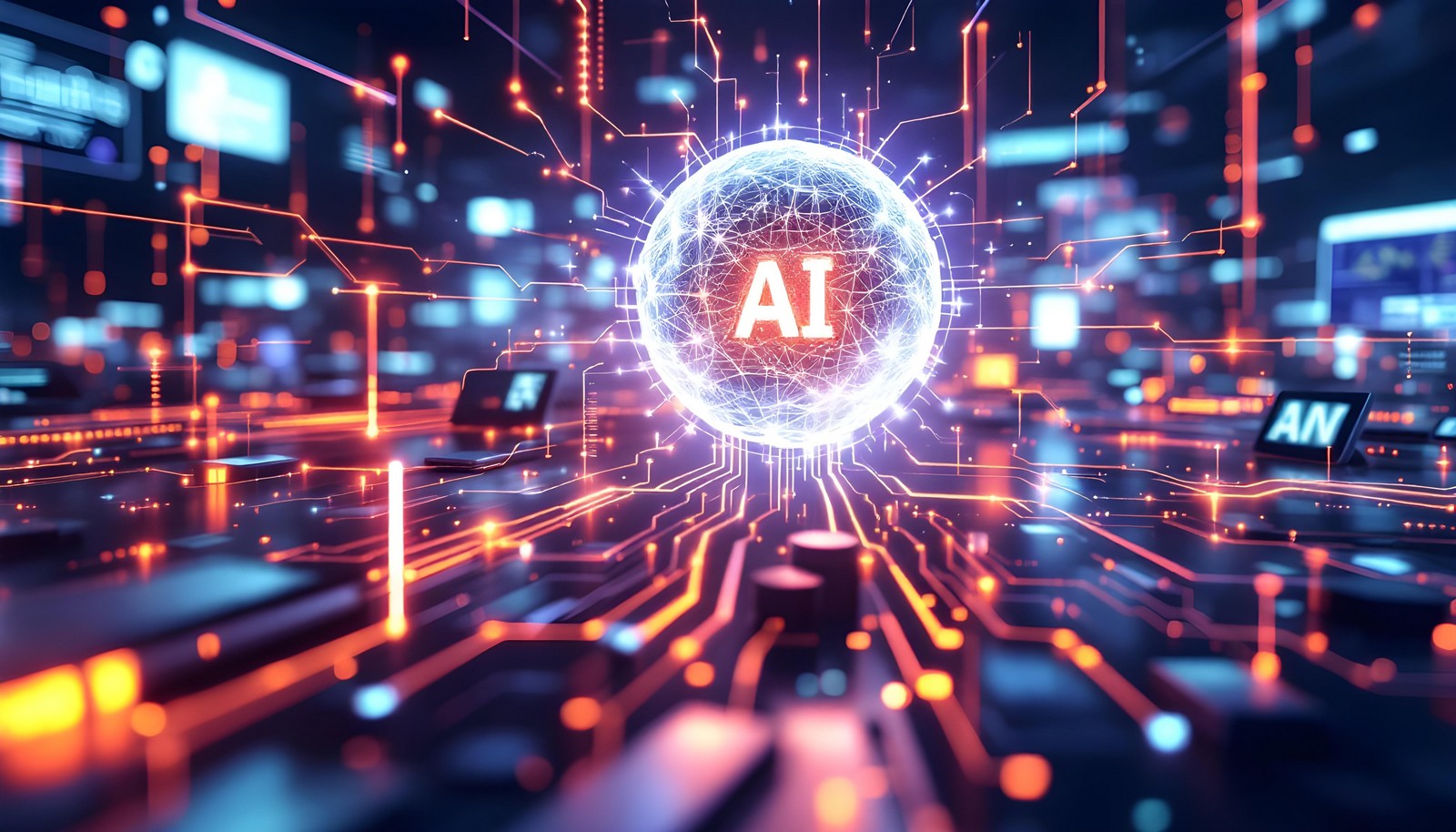AI Inference

Quick Navigation:
- AI Inference Definition
- AI Inference Explained Easy
- AI Inference Origin
- AI Inference Etymology
- AI Inference Usage Trends
- AI Inference Usage
- AI Inference Examples in Context
- AI Inference FAQ
- AI Inference Related Words
AI Inference Definition
AI inference is the process of utilizing a trained artificial intelligence model to make predictions or decisions based on new data. Unlike the training phase, where an AI model learns patterns from vast amounts of data, inference is where the model applies that learned knowledge in real-world applications. Technically, inference uses layers of neural networks, pre-trained parameters, and algorithms to analyze data input and yield a result—such as recognizing objects in an image, translating languages, or predicting customer behavior. Inference relies on hardware like GPUs or NPUs (Neural Processing Units) to process large volumes of data swiftly and accurately.
AI Inference Explained Easy
Imagine you have a super-smart computer that you’ve trained to recognize animals from pictures. You’ve shown it tons of pictures of cats, dogs, and birds, so it learns what each one looks like. Now, when you show it a new picture it’s never seen before, it can guess what animal it is. That’s inference! The computer uses what it learned from the training pictures to make a smart guess on a new one.
AI Inference Origin
AI inference grew as an extension of machine learning and deep learning research. Initially, AI models were created only to experiment with data, but over time, researchers recognized the potential to deploy these models into real-world applications. The rapid development of computational hardware—such as GPUs, TPUs (Tensor Processing Units), and NPUs—enabled quicker and more efficient inference processes. AI inference has become central to many applications across industries, from health diagnostics to finance, all thanks to these technological advancements.
AI Inference Etymology
The term "inference" comes from Latin “inferre,” which means “to bring in” or “deduce.” It reflects the model's role in bringing forward a conclusion based on existing data.
AI Inference Usage Trends
AI inference has been increasingly adopted in industries where real-time data processing and predictions are critical. For example, social media platforms use inference models to personalize content for users, while autonomous vehicles rely on inference to navigate and make real-time decisions. The rise of mobile devices and IoT (Internet of Things) has further driven the demand for on-device inference, allowing predictions to be made quickly without needing a constant connection to the cloud.
AI Inference Usage
- Formal/Technical Tagging: Machine Learning, Model Deployment, Predictive Analytics, Neural Processing
- Typical Collocations: AI inference engine, inference speed, model inference, inference latency, inference results
AI Inference Examples in Context
- Self-driving cars rely on AI inference to quickly interpret road signs, detect pedestrians, and make navigational decisions.
- In healthcare, AI inference helps analyze X-rays and MRI scans to detect early signs of diseases.
Voice assistants, such as Alexa and Siri, use AI inference to understand spoken commands and respond with the correct action.
AI Inference FAQ
- What is AI inference?
AI inference is the process of using a trained model to make predictions or decisions based on new data. - How does AI inference work?
It uses neural network layers and learned parameters to analyze new input data and produce results. - What is the difference between AI training and inference?
Training teaches the model with data, while inference applies what it has learned to new situations. - Why is AI inference important?
It allows AI models to perform real-time predictions and decisions in applications. - What devices support AI inference?
Many devices, from powerful servers to mobile phones with dedicated NPUs, support inference. - What is inference latency?
Inference latency is the delay between data input and the model's output, crucial in real-time applications. - Which industries use AI inference?
Industries like healthcare, finance, automotive, and entertainment use inference for real-time applications. - Can AI inference run on mobile devices?
Yes, many mobile devices are now equipped with NPUs to perform on-device inference. - What is an inference engine?
An inference engine is specialized software that helps execute AI inference tasks efficiently. - Does inference need internet?
Not necessarily; it can run on-device or in the cloud, depending on the application.
AI Inference Related Words
- Categories/Topics: Machine Learning, Neural Networks, Artificial Intelligence, Predictive Analytics
- Word Families: Infer, Inference Model, Inferencing, Neural Processing
Did you know?
AI inference isn't only for tech giants. Today, many startups are using compact inference models on mobile devices and wearables, creating everything from smart health monitoring apps to personalized fitness trackers—bringing advanced AI right to your pocket.
PicDictionary.com is an online dictionary in pictures. If you have questions or suggestions, please reach out to us on WhatsApp or Twitter.Authors | Arjun Vishnu | @ArjunAndVishnu

I am Vishnu. I like AI, Linux, Single Board Computers, and Cloud Computing. I create the web & video content, and I also write for popular websites.
My younger brother, Arjun handles image & video editing. Together, we run a YouTube Channel that's focused on reviewing gadgets and explaining technology.



Comments powered by CComment